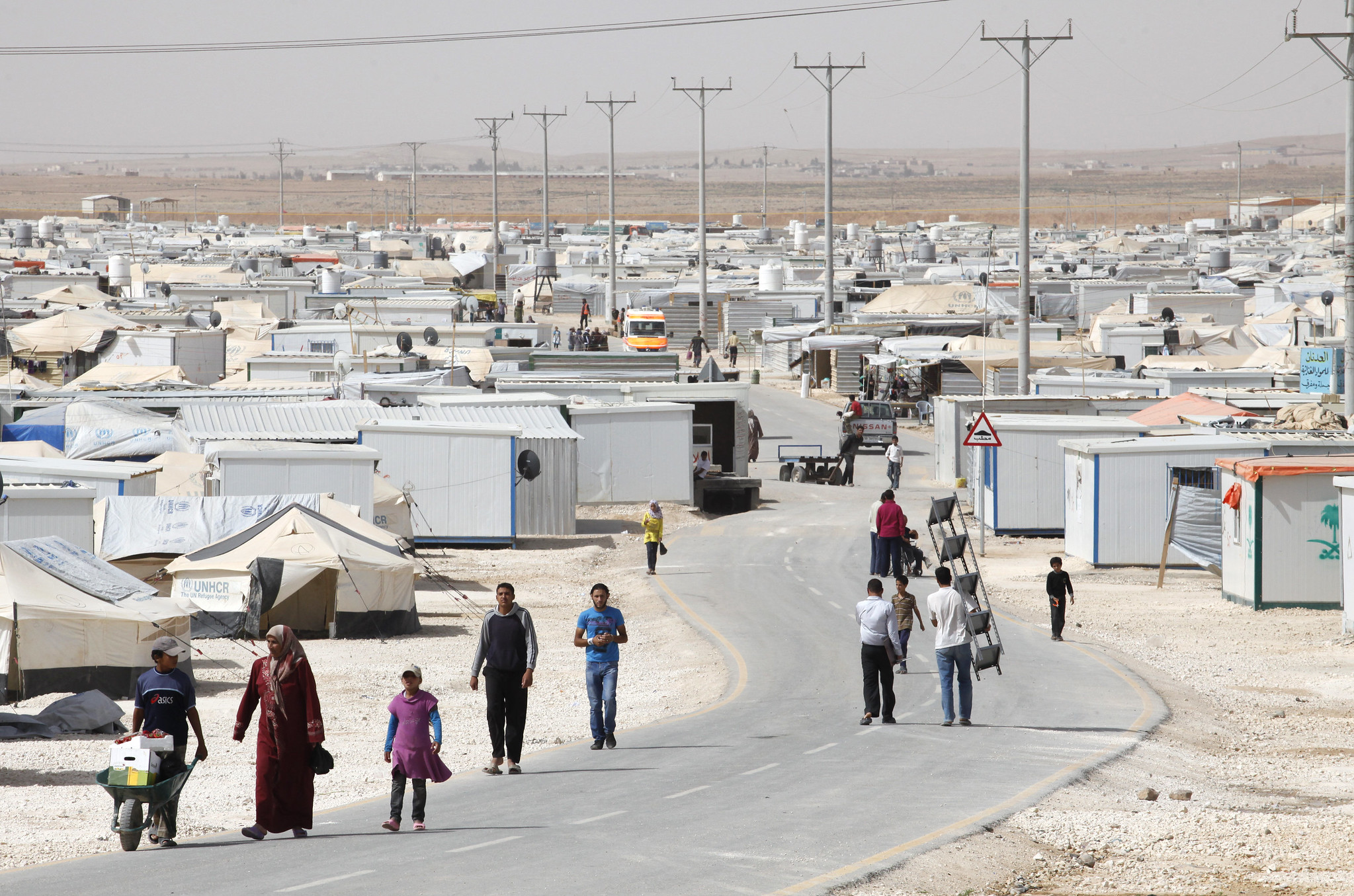Syrian refugee study releases four years of panel data to spur new insights into understudied communities

A photo of the Zaatari refugee camp in Jordan, in June 2014. Credit: Dominic Chavez/World Bank
BERKELEY, CA (20 June 2024) – To commemorate World Refugee Day, the Syrian Refugee Life Study (S-RLS) today provided open access to four years of comprehensive panel data from its longitudinal study of Syrian refugee households. Seeking to address a critical gap in evidence about displaced communities, the researchers behind the study hope to encourage more research into the refugee crisis and inform better policy and practice.
Housed at the Center for Effective Global Action (CEGA) at the University of California, Berkeley, S-RLS is a representative panel of approximately 2,500 Syrian refugee households in Jordan. Including both refugees residing in camps and settled in host communities, it provides detailed data on refugees’ economic, physical, social, and emotional wellbeing. It is the first panel study to track Syrian refugees over time and one of the first panel studies globally of a migrating population.
“Forced displacement remains woefully understudied, and leaders lack actionable, evidence-informed insights to aid their decision making,” said Edward Miguel, Distinguished Professor of Economics at the University of California, Berkeley, and lead investigator on the study. “S-RLS offers a rare opportunity to start to close that gap for the research and policy communities.”
The announcement combines the release of three rounds of new data from its 2021 phone survey, 2022 in-person survey, and 2023 phone survey with an existing round of data from 2020. Taken together, the dataset provides unprecedented spatial and temporal coverage of a population that is difficult to track and survey successfully over time. S-RLS Researchers intend the dataset to enable scholars and decision makers to run new analyses, start new research projects, and seed future collaborations on survey rounds.
The dataset can be accessed on the Harvard Dataverse. Each round of data collection includes a comprehensive data package that will be housed in the Dataverse. Please consult the corresponding ReadMe documents to navigate each respective package. All data has been deidentified.
Today, more than 100 million people are displaced globally, the highest level in recorded history. In the last decade, humanitarian crises have led to a surge in the number of forcibly displaced people. Yet, a lack of longitudinal data about the population undermines efforts to best allocate scarce resources and support vulnerable people.
“We see it as a public good,” added Miguel. “We’re committed to addressing the evidence shortfall in forced displacement, and we hope potential partners will recognize the value here and join our efforts to generate new insights into this population.”
To learn more about the Syrian Refugee Life Panel, please contact CEGA Research Associate Mansi Kalra at mkalra [at] berkeley [dot] edu.
This project was funded with UK International Development from the UK government, awarded through Innovation for Poverty Action’s Peace & Recovery Program.
###
About CEGA
The Center for Effective Global Action (CEGA) is a hub for research, training, and innovation headquartered at the University of California, Berkeley. The Center generates insights that leaders can use to improve policies, programs, and people’s lives. Its academic network includes more than 160 faculty, 78 scholars from low- and middle-income countries, and hundreds of graduate students — from diverse academic disciplines around the world — that produce rigorous evidence about what works to expand education, health, and economic opportunities for people living in poverty.
Media Contacts
Matthew Kertman
Director of Strategic Communications
kertman [at] berkeley.edu

